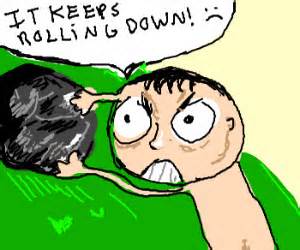What we want in America is a fair chance to succeed. On the other hand, imposing economic equality through the redistribution of wealth has always seemed un-American. But there is a place where the needs for greater equality and a fairer playing field converge, and we are in that place today.
A good life and good work are not possible without the opportunity to make enough to meet our basic economic needs. In other words, every American needs a fair shot at the American pie, as opposed to an increasingly small piece of it. As the nation’s wealth concentrates in the hands of a few, fair opportunity disappears and makes the need for a national conversation about greater economic equality more pressing.

“Fairness” (in terms of opportunity) and “equality” (as a way to distribute wealth) are not the same thing.
Surveys regularly find that Americans accept a certain amount of inequality when it comes to wealth because of factors like individual merit. When one study asked about their ideal distribution of wealth, most responded with an allocation that was far from equal. People in the top 20% could have three times as much wealth as those in the bottom 20%, they said. In the article that reported these findings, this study’s author described the majority’s comfort level as “not too equal, but not too unequal.” By contrast, 84% of the nation’s wealth is in the hands of the top 20% today compared to only 0.3% in the hands of the bottom 20% (or more than 250 times as much)—an almost textbook case for “too unequal.”
In order to focus debate on this vast disparity of wealth in America, it will be necessary to bear in mind the differences between fairness and equality, because the distinction:
allows us to zoom in on certain critical questions that have long been of interest to political scientists and moral philosophers. When is it unjust to treat people the same—that is, which factors (hard work, skill, need, morality) are fair grounds for inequality and which are not? Which resources should be distributed on the basis of merit?
We can accept inequality under certain circumstances, but extreme disparities in wealth offend our basic sense of justice and fairness.
The richest 20% seem to know that there is something offensive about the gulf that exists between them and the other 80% of Americans. There was a piece in the New York Times last week that had a great deal to say about their (or our) discomfort with what the author called “the moral stigma of privilege.” Interviews with wealthy New Yorkers revealed that they routinely:
-take price tags and labels off expensive purchases so housekeepers and nannies can’t see the “obscenely high” amounts that they pay for items like “six dollar bread;”
-describe themselves as “comfortable,” “fortunate” or even “middle class” instead of rich or upper class;
-point out how “hard-working,” “charitable” and sensitive they are about “not showing off” what they have.
Their consideration, lack of ostentation, and other personal qualities seemed to be offered so that the interviewees can be seen as “worthy” of their privilege. “If they can see themselves [and the rest of us can see them] as hard workers and reasonable consumers,” the author notes, “they can belong symbolically to the broad and legitimate American ‘middle,’ while remaining materially at the top.”
Whether rich people are also “good people” simply obscures the important issue however.
[W]hat’s crucial to see is that such judgments distract us from any possibility of thinking about redistribution. When we evaluate people’s moral worth on the basis of where and how they live and work, we reinforce the idea that what matters is what people do, not what they have. With every such judgment, we reproduce a system in which being astronomically wealthy is acceptable as long as wealthy people are morally good.
So the issue isn’t whether rich people are also nice and hardworking. Instead, it is whether we should tolerate a small percentage of our citizens having so much more than everyone else. Is this state of affairs “good” for us as citizens and as a country?

With more wealth concentrating at the top of society, it is hardly surprising that the populism behind movements like Occupy Wall Street and the Tea Party became even more pronounced in the last election. Wealthy, often urban professionals on the right and left coasts may be puzzled by it and disgusted with some of the key players, but somewhere within this political upheaval is the desire for a fairer opportunity to pursue a good life and good work. To realize that desire will mean reducing the economic divide after an honest discussion with these same wealthy, often urban professionals about the inequality that benefits them most.
“A shot at the American Dream” was the chance that every returning soldier wanted to take in 1945. The G.I. Bill after World War II reduced economic inequality by providing a fairer opportunity (with the possibility of college and home ownership) to the mostly white men of every economic class who were coming home. After their own struggle for greater equality, women and minorities secured a fairer opportunity to pursue a good life and work after the Great Society programs of the Sixties and the women’s movement of the Seventies. Indeed, many of the men and women who benefitted from that 30-year push for greater equality made it into today’s wealthiest class, or lived to see their highly educated children enter it.
Today, there is once again an urgent need to confront the economic disparities that have become entrenched since our last conversation as Americans about greater equality in terms of wealth and class. For the vast majority, a fairer opportunity to pursue a good life and good work will not be possible until we do.
